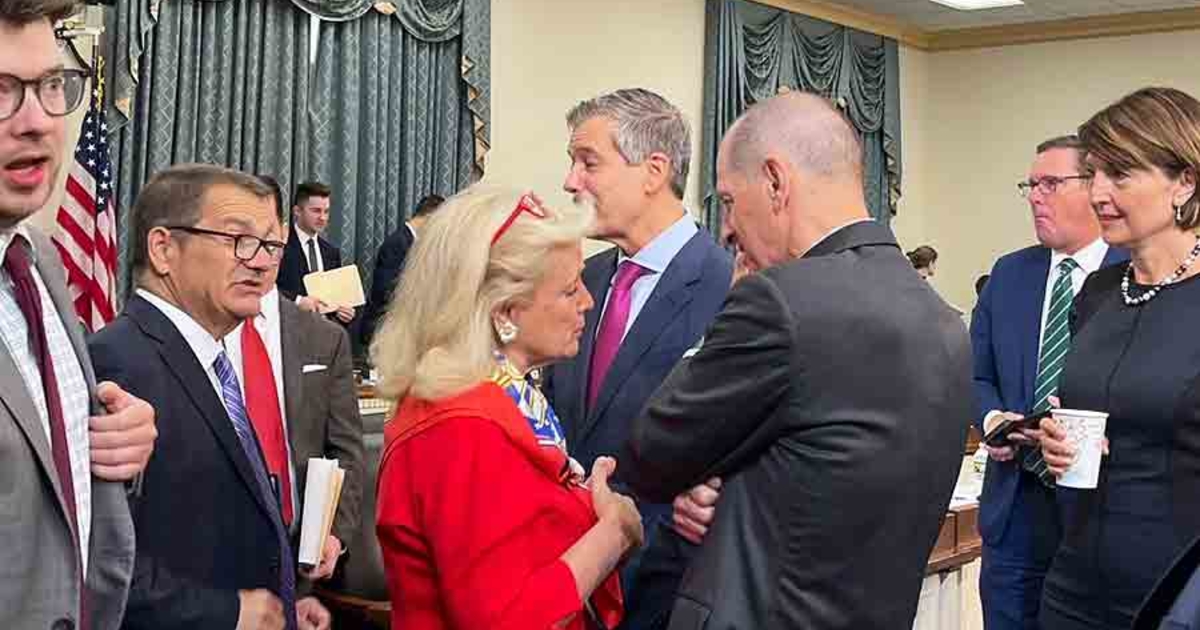
WASHINGTON — The head of a major automotive trade group told a House panel Wednesday that the U.S. risks falling behind to China if it does not move forward on a federal regulatory framework for autonomous vehicles.
John Bozzella, CEO of the Alliance for Automotive Innovation, likened the situation to the transition to electric vehicles, citing China’s early strategic investments in EV technologies and its control of battery supply chains.
“Do we want this safety technology to exist and the vehicles to be built and to operate here in the U.S. instead of China? This is a question that can only be answered by federal policymakers,” Bozzella told lawmakers at a hearing convened by a House Energy and Commerce subcommittee.
In written testimony, Bozzella further elaborated on this issue, explaining that federal legislation that addresses regulatory barriers is “essential” to the development of AV technology and U.S. leadership, citing the demise of Ford- and Volkswagen-backed Argo AI as a possible harbinger of the industry’s direction without it.
“In this time of massive transformation for industry, companies cannot afford to endlessly allocate massive capital into the void of uncertainty,” he wrote. “If our federal policy and regulatory environment does not change course, I have serious concerns that Argo’s fate may be a bellwether for other promising U.S. companies and, ultimately, the entire AV industry in the U.S.”
Bozzella said Congress has been “bogged down on AVs,” but even with bipartisan support, there has been little movement on federal rules for nearly a decade.
Previous legislative attempts have stalled in Congress, with lawmakers generally supportive of a federal framework but divided over various legal and consumer matters. Ongoing pushback from groups representing consumers, trial lawyers and transportation unions also have impeded legislative efforts.
The hearing on Wednesday focused on separate draft legislation from Rep. Bob Latta, R-Ohio, and Rep. Debbie Dingell, D-Mich.
In an interview Tuesday, Dingell told Automotive News it was her goal to pass AV legislation this year, and the hearing was a step toward finding common ground.
“What we really want to do is we want to know what stakeholders like, what they don’t like, what’s missing and what should be struck,” she said. “We need to move this forward. Quite frankly, we are behind.”
Both draft bills, though different, would establish a national standard that allows for the widespread testing and deployment of AVs and addresses certain safety and security risks among other outstanding issues. Both, too, would raise the volume cap on exemptions that can be granted to manufacturers of vehicles that do not have traditional controls like steering wheels or brake pedals. The current cap of 2,500 vehicles would be increased up to 100,000 under Latta’s bill, while Dingell’s version would increase it up to 80,000.
Latta’s bill — the previously introduced Self Drive Act — also would block certain manufacturers from being granted an exemption if they share information with, or are controlled by, China.
Earlier this month, Reps. Dingell and Latta and two other lawmakers urged the Biden administration to investigate and limit the operation of AVs made by Chinese companies in the U.S., citing concerns of national security and competitiveness.
At the hearing, both Republican and Democratic lawmakers raised concerns over China’s AV advancements and risks to U.S. leadership.
“China’s ambitions in this industry present a critical economic and national security threat to our country, especially when you consider seven Chinese … car companies testing on our roads today,” said Rep. Cathy McMorris Rodgers, R-Wash.
Other witnesses at the hearing were Philip Koopman, a Carnegie Mellon University professor; Mark Riccobono, president of the National Federation of the Blind; and Gary Shapiro, CEO of the Consumer Technology Association, which produces the CES trade show.
Koopman — who has been working in the AV safety field for more than two decades — urged caution, asking Congress to consider a federal framework that prioritizes safety, transparency and accountability.
“The mobility, economic and safety benefits promised by manufacturers will only materialize if self-driving vehicles can be made safe and reliable at scale,” Koopman told lawmakers. “The industry is not there yet.”
On China, he said the race is not to put robotaxis on roads but to ensure they’re safe and reliable.
“Exempting our own companies from safety standards might provide the illusion of progress for their technology. However, foreign competitors are taking safety much more seriously than many of the U.S. companies due to stronger regulatory regimes at home,” according to his written testimony.
Ahead of the hearing, auto safety and consumer advocates urged Congress not to advance AV legislation that they say lacks “common sense” safeguards and regulations to protect road users.
Some safety advocates also pushed back on claims that China is in the lead on AVs.
“Any claims that China is getting ahead of us in the self-driving race, and it’s our onerous federal regulations that are holding companies back from being successful, I mean, these are false and they’re fear-baiting,” said Missy Cummings, a former senior safety adviser to NHTSA.
Michael Brooks, executive director at the Center for Auto Safety, referred to the China competitive threat as “fiction” and part of the “AV misinformation campaign.”
“That competitive threat doesn’t exist,” he argued. “It’s actually a security threat that could be addressed — and could have been addressed for years now — with strong vehicle cybersecurity rules that the auto industry has continued to resist.”

